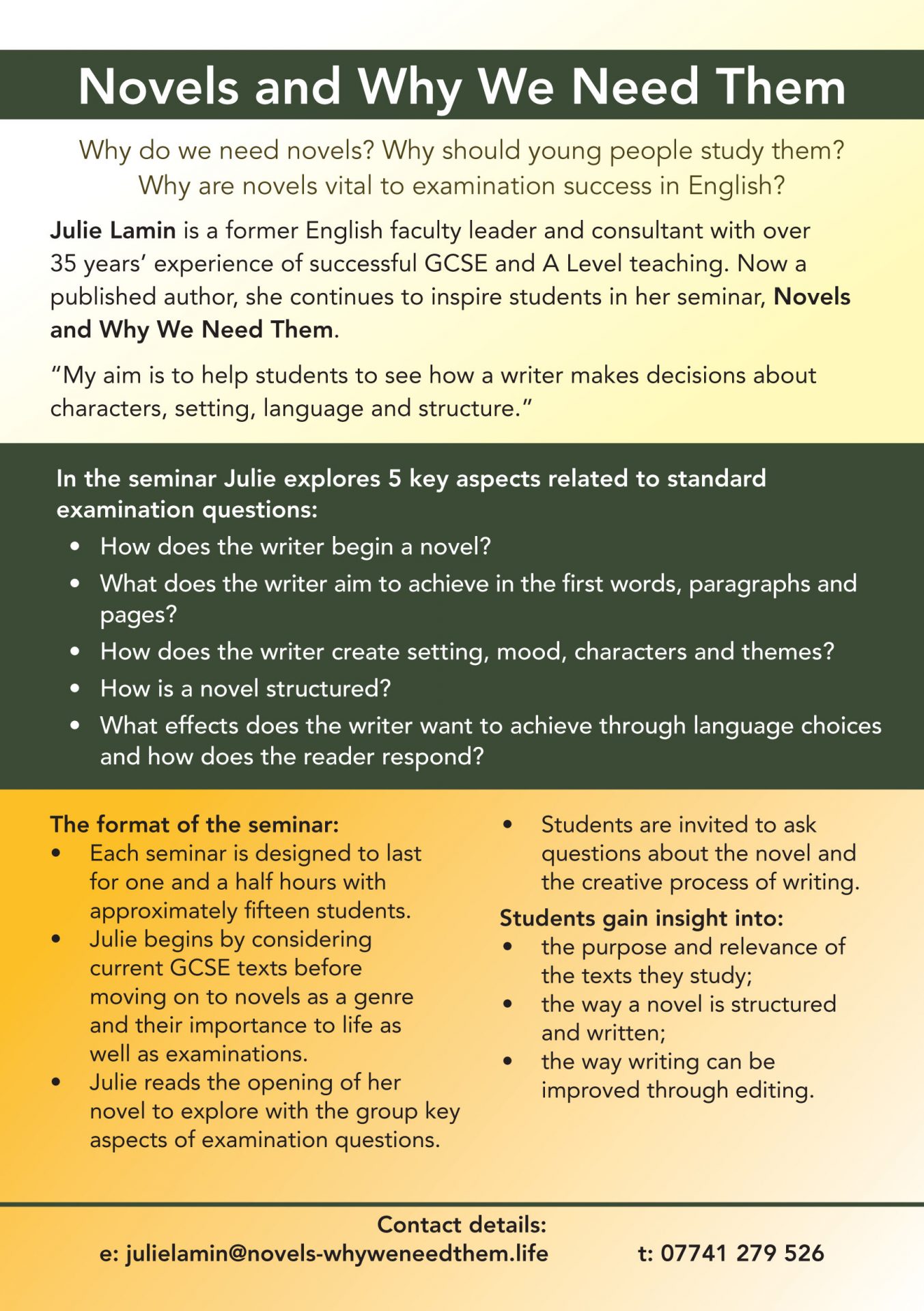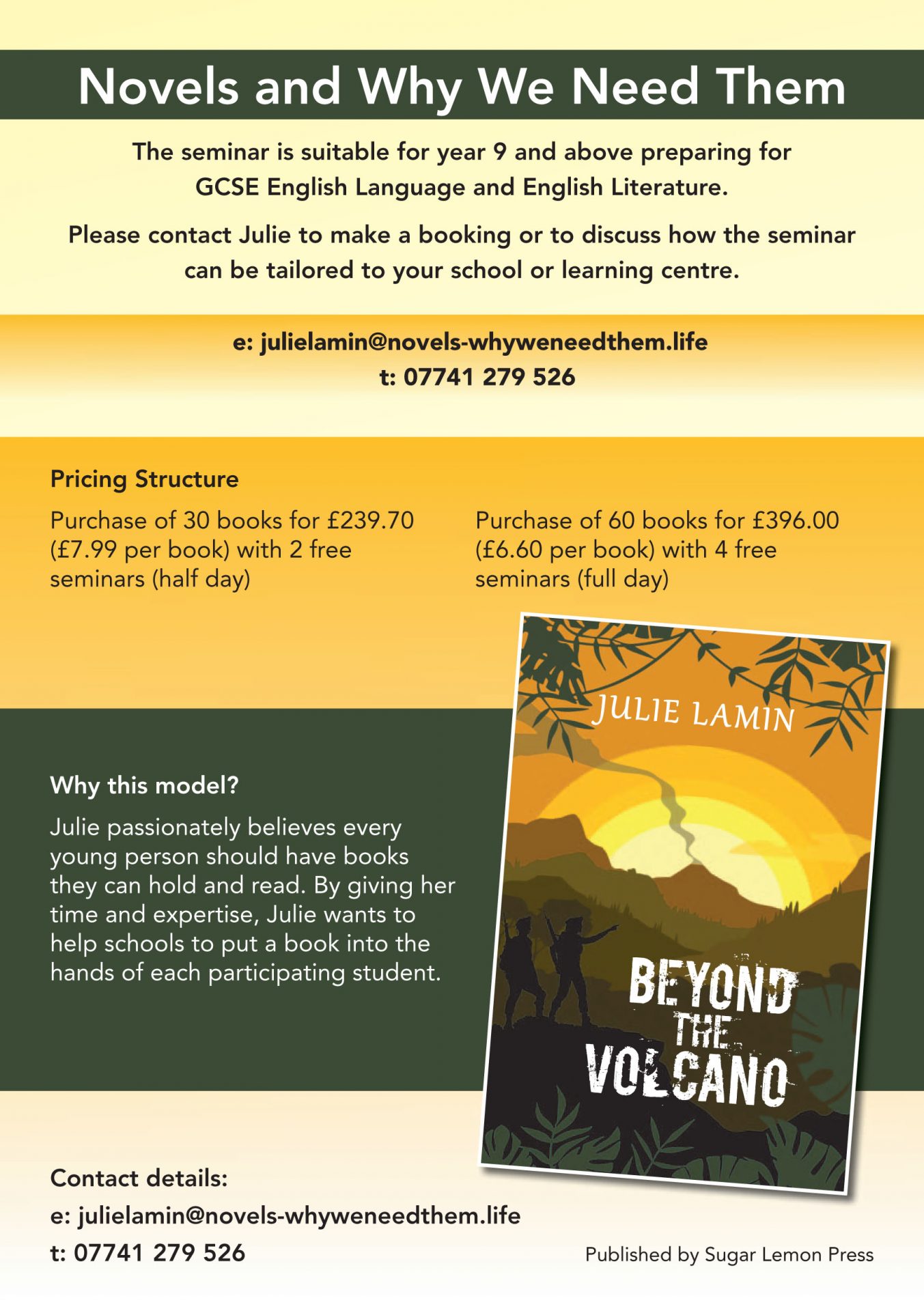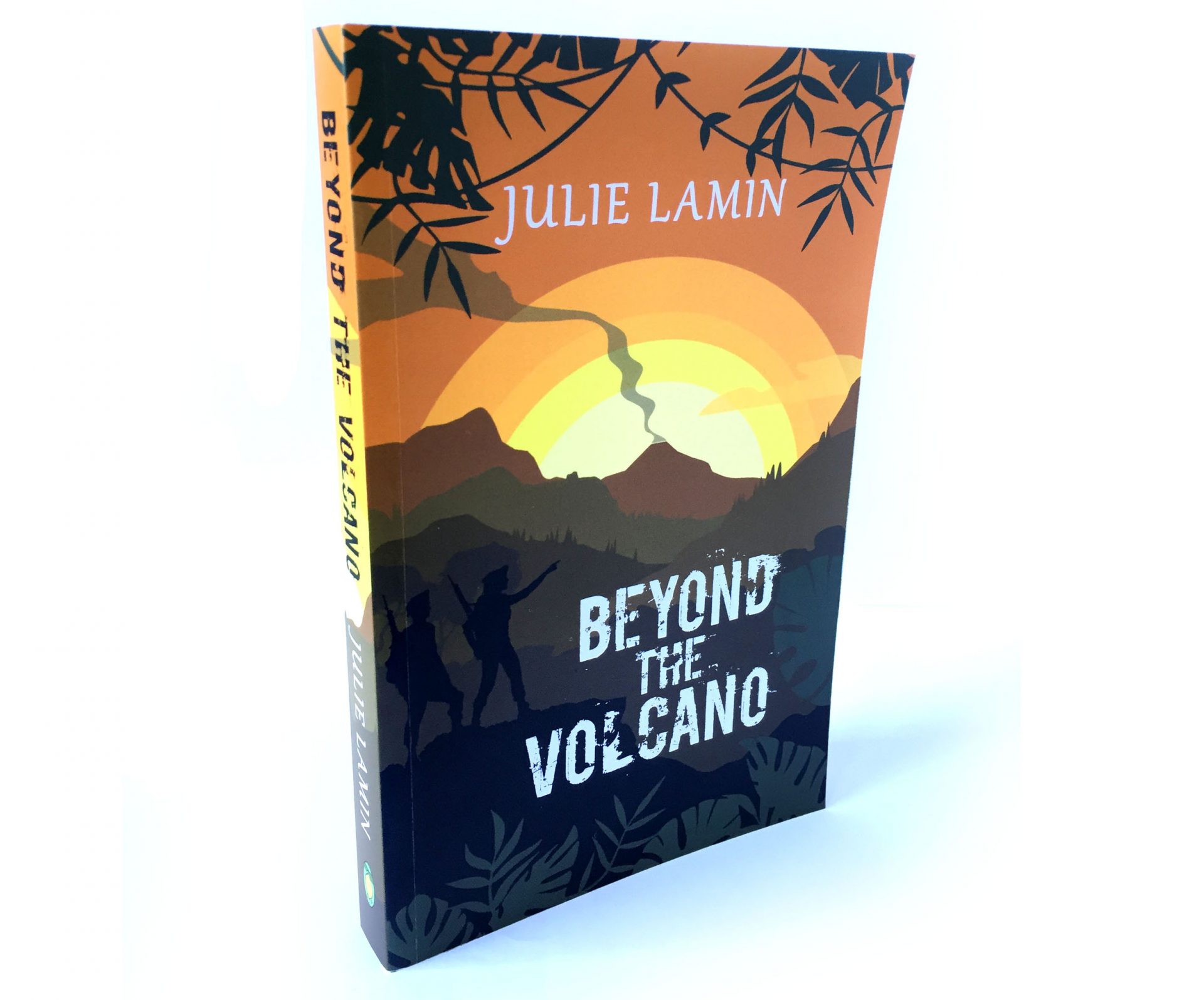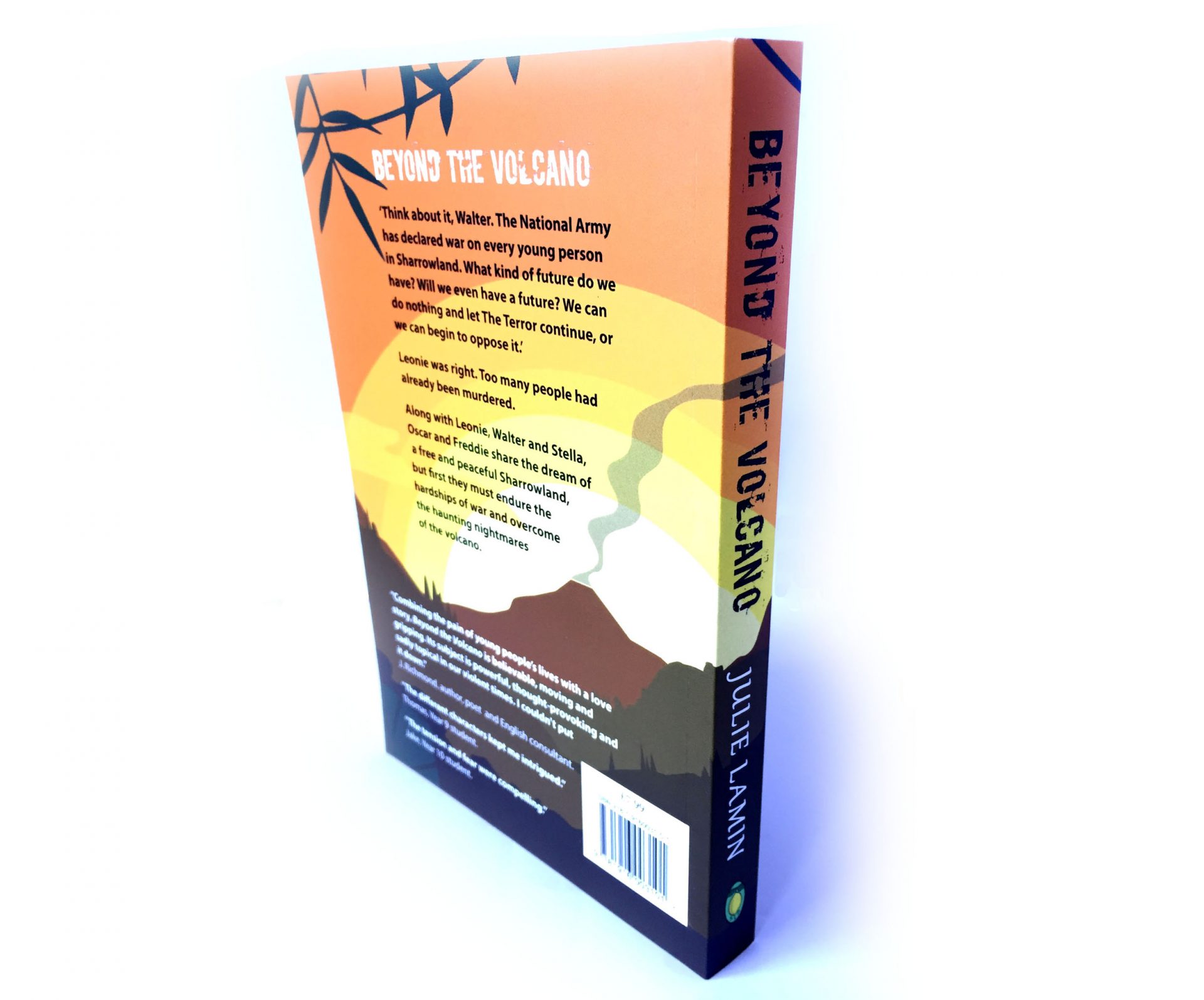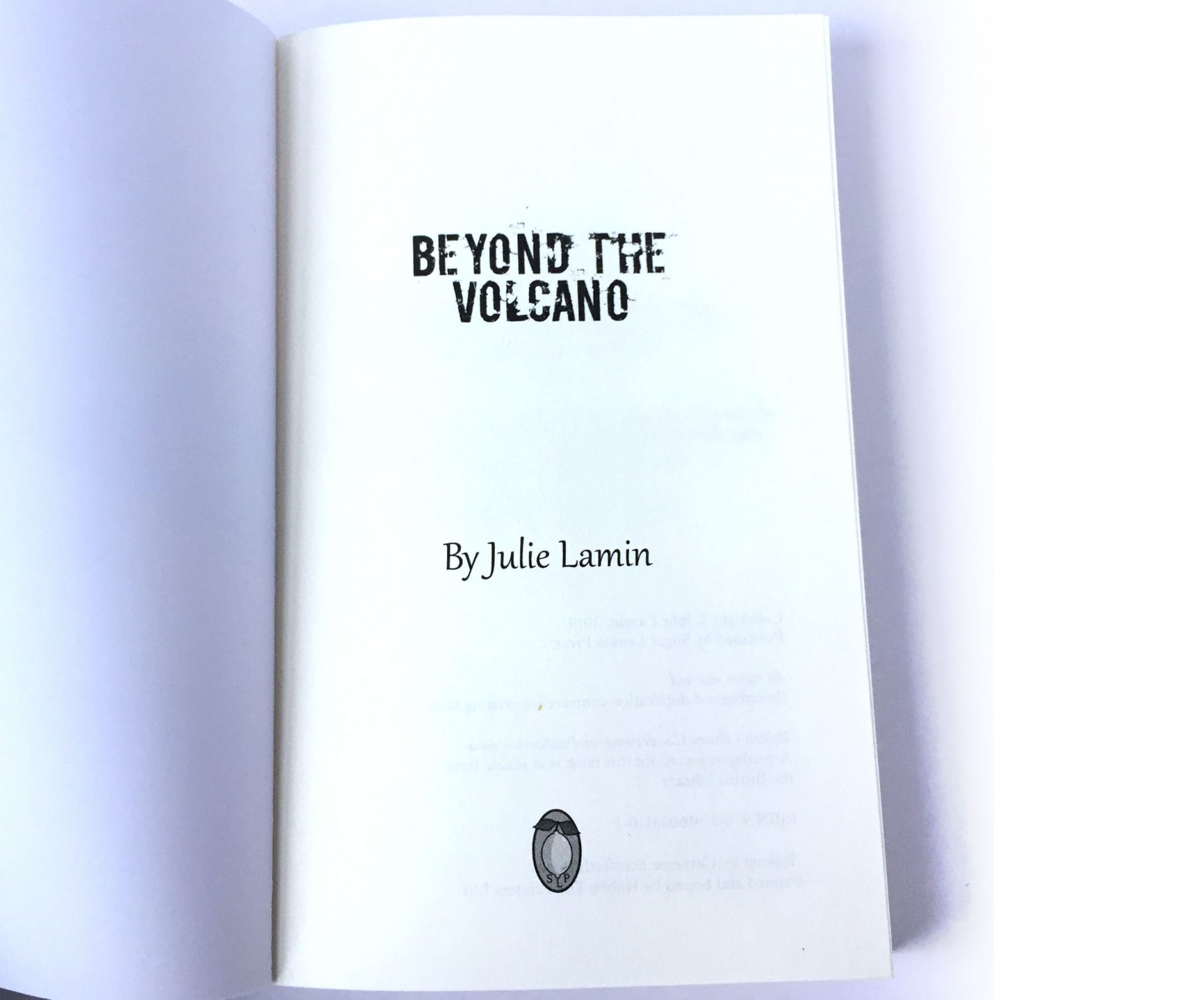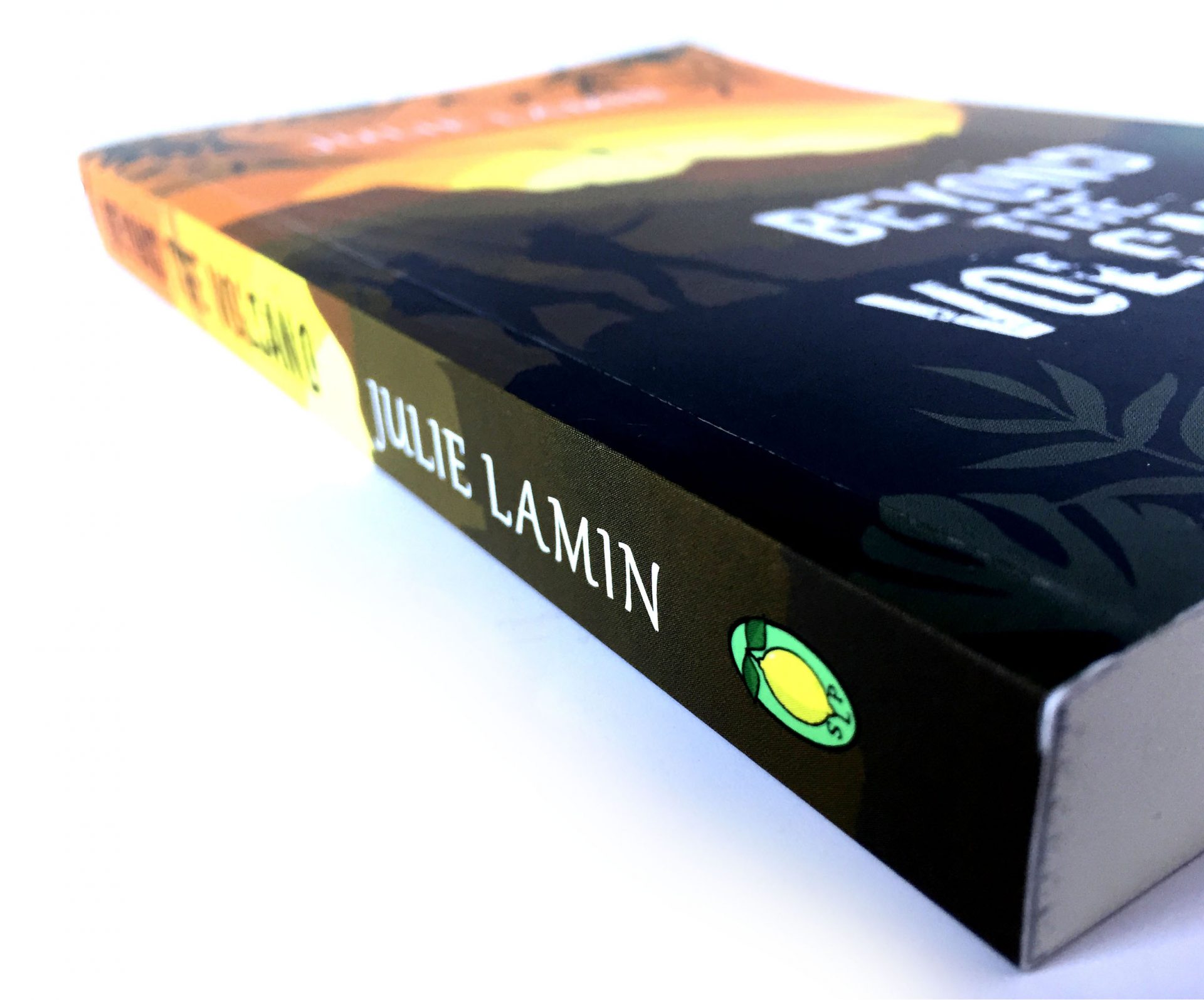An Interview With Author, Julie Lamin
We recently had the pleasure of working with the lovely Julie Lamin on her novel Beyond the Volcano. Julie is a former English faculty leader and consultant with over 35 years’ experience of successful GCSE and A Level teaching. Now a published author, she continues to inspire students in her seminar, ‘Novels and Why We Need Them’. She sat down to have a chat with us, discussing why she wrote Beyond the Volcano, the process of publishing her book, some tips for aspiring writers and the importance of reading.
What is the book about and why did you decide to write it?
Growing up in the United Kingdom during the nineteen-seventies, I was lucky enough to live with peace and freedom and to benefit from all the welfare state had to give in health and education. Beyond the Volcano is a novel about young people growing up at the same time as me who were not so lucky.
Sharrowland is ruled by a dictator whose National Army soldiers murder young, poor people like Stella, Walter and Leonie. As their fear escalates, their best hope for survival is to join the resistance movement. Oscar and Freddie, protected at first by their privileged background, gradually awaken to the horrific nature of the dictatorship.
Despite the injustices and suffering in the first part of the novel, Beyond the Volcano is ultimately about hope, that a better world is possible.
What was the writing process like – any tips for first-time/aspiring authors?
If reading is like swimming in the sea – you are immersed and vaguely aware that normal life continues on the beach – then writing is deep-sea diving. Writing is an exciting world you enter every time you open your laptop, but you are also ‘writing’ when you are swimming for real, or walking along; these are times in your head for working out character and plot.
Sometimes you have to put yourself in the place of your characters. For instance, in Beyond the Volcano, my characters have very little to eat so I made myself go hungry for as long as possible! You draw on your own and other people’s extreme life experiences and you check with research. Sadly, when I was writing Beyond the Volcano, news reports verified that life for many young people around the world is precarious and dangerous.
Some advice for other writers:
- As the saying goes, a journey begins with one small step and so with writing: pick up a pen and paper and let the words flow. Editing is for later. Take courage and your first small steps will become confident strides. Enjoy the journey.
- Later is for editing and editing is essential. If you want others to read your work then all the basics of English grammar and punctuation must be spotless. You may even spend one day putting in a comma then another day taking it out!
- Others will help you!
Why is it important for young people to read novels? Tell us more about your work with schools to encourage young people to study novels
In my long career as a secondary English teacher and faculty leader, I constantly promoted reading and provided opportunities for quiet, personal reading during the school day. Being involved in the world of a novel not only enables young people to be skilled readers, it also promotes emotional resilience and empathy. Ironically, fiction often helps us to better understand our real world.
Books are a great invention! Despite our digital advances, holding a real book in your hands is an experience we still need as humans. I believe every child and young person should regularly have that experience.
As an experienced English teacher and consultant, I provide a free seminar, ‘Novels and Why We Need Them’, with class purchases of Beyond the Volcano. Suitable for year 9 and above, the seminar explores how writers make decisions about characters, setting, language and structure. With over 35 years’ of successful GCSE and A Level teaching, I link the seminar to the type of questions students encounter in the current GCSE English Language examination such as how does the writer begin a novel? What does the writer aim to achieve in the first words, paragraphs and pages?How is a novel structured? etc.
My aim is to explore these questions in relation to the opening pages of Beyond the Volcano. My hope is that after the seminar, the students will continue to read the novel!

